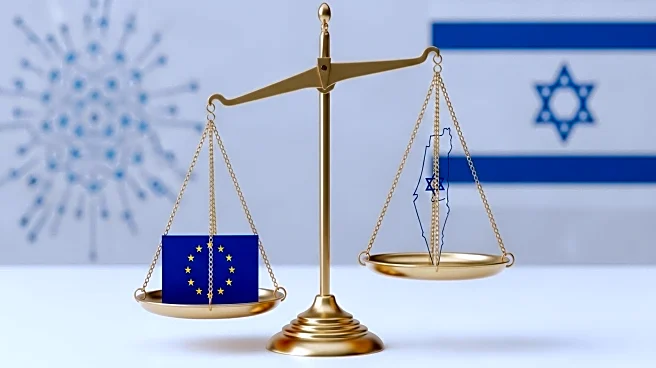What's Happening?
The European Commission has proposed sanctions on Israel, including the suspension of trade benefits, in response to the deteriorating humanitarian situation in Gaza. The proposal targets far-right Israeli ministers and violent settlers, citing breaches of human rights and democratic principles. The Commission argues that Israeli actions in Gaza and the West Bank undermine the two-state solution. The proposal faces challenges in securing support from EU member states, with Germany and Italy expressing reluctance to impose penalties on Israel. The EU remains committed to humanitarian aid and the two-state solution.
Why It's Important?
The EU's proposal to impose sanctions on Israel highlights the international community's concern over the humanitarian crisis in Gaza. If implemented, the suspension of trade benefits could impact Israel's economy, as the EU is its largest trading partner. The sanctions reflect the EU's stance on human rights and democratic principles, emphasizing the need for Israel to address humanitarian issues and engage in peace negotiations. The proposal underscores the growing pressure on Israel to change its approach to the conflict and improve conditions in Gaza. The outcome of this proposal could influence future EU-Israel relations and impact broader geopolitical dynamics.
What's Next?
The proposal's success depends on securing a qualified majority of EU member states, which remains uncertain due to opposition from key allies like Germany and Italy. If approved, the suspension of trade benefits could lead to economic repercussions for Israel and affect its diplomatic relations with the EU. The international community may continue to pressure Israel to change its approach to the Gaza conflict and engage in peace talks. The reaction of Israeli leaders and their response to the EU's measures will be crucial in determining the conflict's trajectory. Continued diplomatic efforts and negotiations will be necessary to address humanitarian concerns and promote stability.











